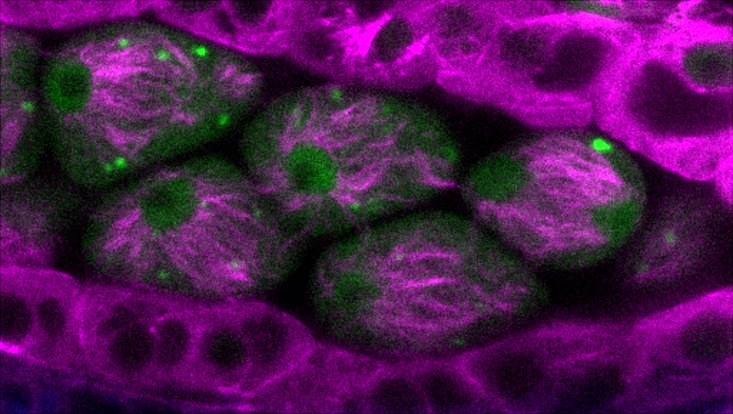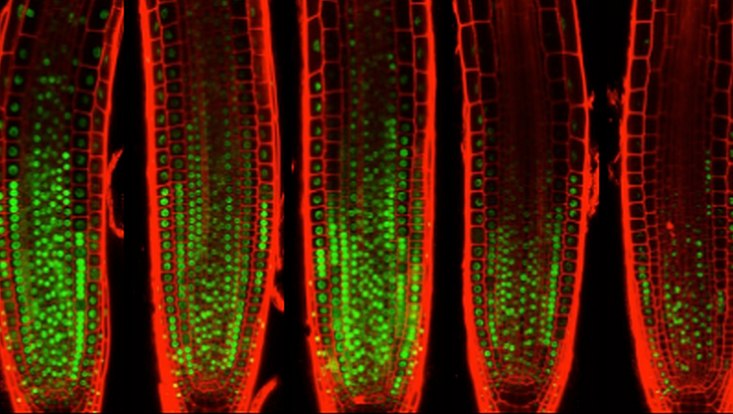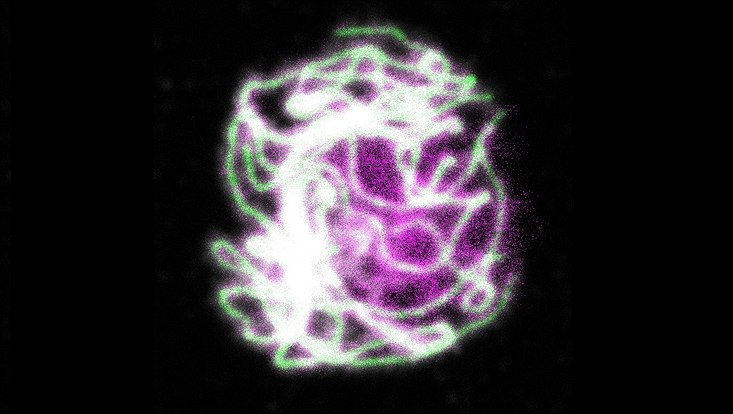Climate change affects heredity in plants
28 October 2021, by Website Team Biologie

Photo: UHH/De Jaeger-Braet
Climate change will also have an influence on plant heredity. A team led by the Department of Biology at the University of Hamburg has now investigated how meiosis in plant cells of the species Arabidopsis thaliana proceeds under increased temperatures. The result shows that the timing of meiosis changes and recombination defects occur.
Climate change will affect life on earth in many different ways. One change that is not immediately visible, but may have very far-reaching consequences, is its influence on hereditary processes in plants.
Meiotic recombination, which involves the exchange of genetic information between parental chromosomes, also plays a central role in plant breeding. It can be used to combine advantageous traits, for example the size of fruits with greater resistance to pathogens. Initial research results show that meiotic recombination is altered by an increase in temperature as part of climate change.
In order to better understand the effect of temperature changes on meiotic recombination, a team from the Department of Biology at the University of Hamburg, in collaboration with colleagues from the University Medical Center Hamburg-Eppendorf (UKE), observed the cells of the plant Arabidopsis thaliana, in which meiotic recombination takes place, using live cell imaging at elevated temperatures: at 21 degrees Celsius, under heat shock conditions of 30 and 34 degrees Celsius, and after an acclimatisation period of one week at 30 degrees Celsius.
The results, which have now been published in the journal 'The Plant Cell', offer for the first time a detailed insight into the consequences of temperature increase on the course of meiotic recombination in plants. "In doing so, we have discovered a checkpoint in the plants that verifies to what extent meiotic recombination has proceeded correctly," says Prof. Dr. Arp Schnittger from the Institute of Plant Sciences and Microbiology at the Department of Biology, who led these studies. "The increase from 21 to 30 degrees Celsius accelerated meiosis. And temperatures of 34 degrees Celsius lead to recombination defects, which result in a severe reduction of the plant's fertility." In the next step, Schnittger, his team and the UKE want to describe the recombination defects more precisely and, above all, also at the structural level.
Original publication: Joke De Jaeger-Braet, Linda Krause, Anika Buchholz and Arp Schnittger (2021): Heat stress reveals a specialised variant of the pachytene checkpoint in meiosis of Arabidopsis thaliana


